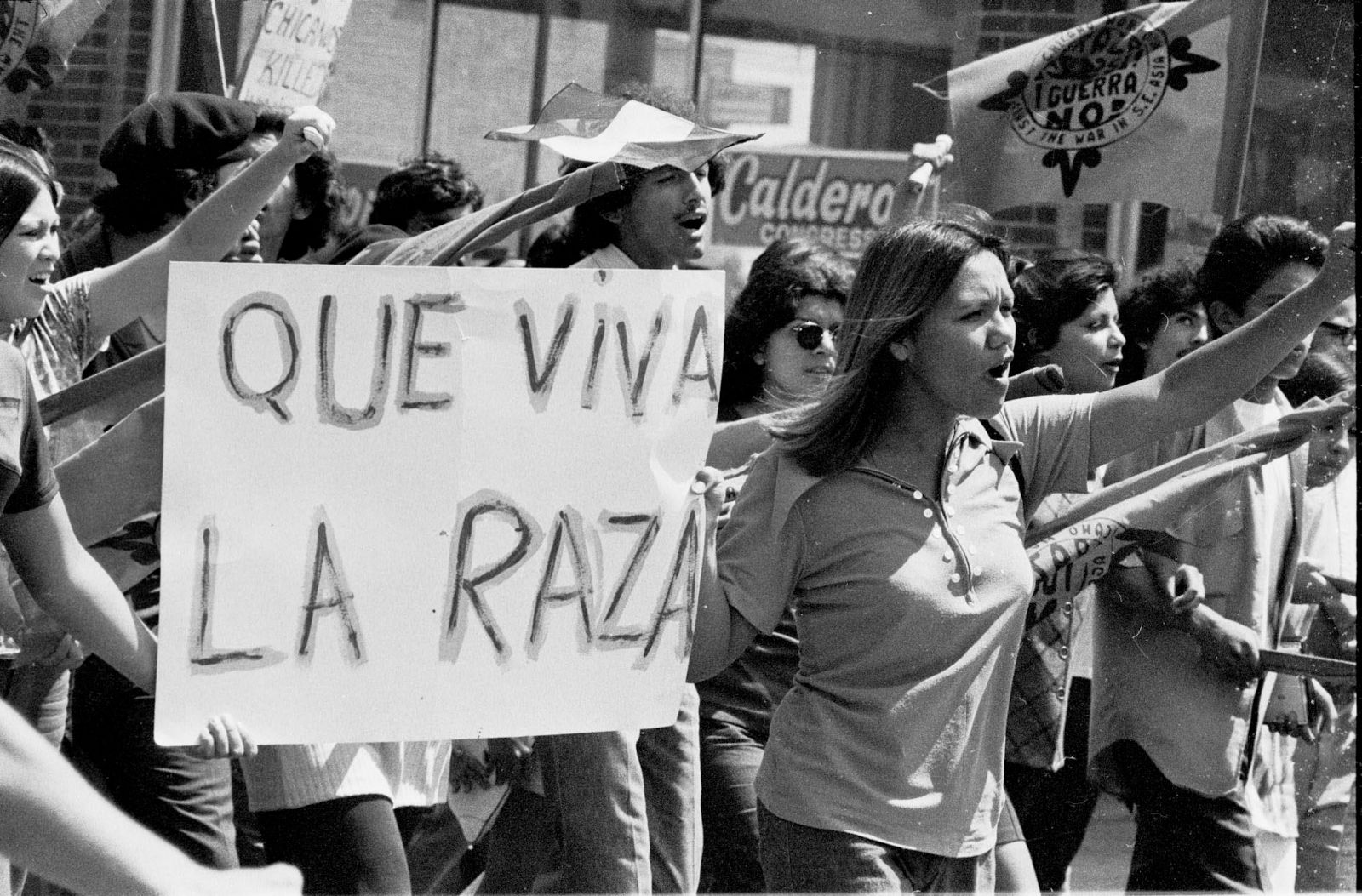By now, it should be clear that Trump and MAGA are not really concerned with the effects of their slash-and-burn policies or the price of eggs—they simply don’t care. What they seek instead is a fundamental transformation of the country, one no longer tethered to social justice, respect for diversity, and truth.
What stands in the way are the gains of the Civil Rights Movement, so their aim is to dismantle any of its progress. A central part of this effort is a direct assault on all ethnic studies.
Trump’s current obsession with K-12 education, diversity, equity, inclusion initiatives, Critical Race Theory, and English-only policies signals his intent to target all forms of ethnic studies.
Even before his fixation with the 1619 Project, the right-wing laid the groundwork for such attacks—most notably in 2010, when it went after a little-known program in Arizona called Mexican American Studies within the Tucson Unified School District. In doing so, the right wing laid the ideological line in the sand: Only the lives of European Americans mattered, truth be damned.
Implemented in 1998, Mexican American Studies was a program developed to help reverse disturbing academic trends among Chicano students in Tucson schools. Though developed with Chicano students in mind, Mexican American Studies classes were successful at positively affecting the academic achievement of all students, regardless of ethnic background, who took the courses.
By all measures, Mexican American Studies was successful. The students loved the courses, as did parents, teachers, administrators, education experts, and a handful of elected officials.
Until Republicans got wind of it.
In 2010, the Republican Party was riding high on a conservative wave sweeping Arizona. When civil rights and labor activist Dolores Huerta made a comment at a school visit they didn’t like, conservatives went on the attack.
They didn’t challenge Huerta’s opinion; they went after Mexican American Studies instead. The program’s success or academic rigor was never the issue; their focus was on ideological control and maintaining power. Now in their crosshairs, Mexican American Studies was vilified as “anti-White,” “anti-American,” and “promoting revolution.”
And just like that, Mexican American Studies in Tucson was elevated to a national threat. In McCarthy-like fashion, Republican leaders—superintendents, Tucson governing board members, state leaders—led an assault to dismantle the program. Mirroring Trump's very own words in Executive Order 14190, they demonized Mexican American Studies as subversive, promoting race and class resentment, and advocating ethnic solidarity.
Books were banned, budgets were cut, and teachers were dismissed. Indeed, this assault was so steeped in paranoia and ideological fear that The Tempest by Shakespeare was deemed too radical and too subversive to expose to young minds.
At its core, ethnic studies courses aim to highlight the experiences and contributions of all U.S. Americans. As Chicanos, we have always understood that our communities helped build this nation and that our contributions matter.
Today, education leaders recognize that engaging with our multicultural reality is essential to understanding what it means to be a part of this country. With this understanding comes the acknowledgment that our shared history has not always been positive. Rather than burying this knowledge, ethnic studies confronts it, reflects on it, and draw lessons from it.
More importantly, the goal is not to instill racial guilt or hatred but rather to foster awareness, empathy, and truth. Yet, it is precisely this awareness that is perceived by some as a threat.
It appears that for Trump and his ilk, the larger issue is about demographics. As the nation inches toward a majority non-White population, ethnic studies suddenly sounds ominous, even dangerous to them. For still others, these changes appear as direct threats to White privilege and to the notion of inherent superiority. Crazy as this might sound, the menace of race science is still a thing.
But when those at the bottom of the perceived social pecking order break the rules and make demands on those at the top, this is when feathers get ruffled and the real panic begins.
This is what happened in Arizona.
Although shaken by the experience, the community rose up like the proverbial phoenix and fought back. Lawsuits were filed, protests were staged, media blitzes were sent out, and coalitions were formed nationwide.
In the end, Mexican American Studies was restored. But more importantly, the Chicano community was revived. The energy formed became such a powerful force that it inflicted damage to the Republicans' stronghold in Arizona.
The solidarity and sense of broader community that was engendered by the attack on Mexican American Studies in Tucson was electrifying. Across the nation, from California and Oregon, to Connecticut and Vermont, ethnic studies expanded.
Indeed, states like California made ethnic studies a requirement when graduating from high school and when transferring to its state university schools. So, rather than killing Mexican American Studies, the right-wing pumped it full of life.
Despite the community’s heroic efforts to defend Mexican American Studies, the chaos sown by the Republican Party took its toll—and this was no accident. The fight was time-consuming, costly, and emotionally draining. Meanwhile, Republicans used the levers of power—funded by taxpayer money—to wage their attacks, facing no consequences themselves.
This is the playbook. This is Trump’s modus operandi: to create such widespread destruction that institutions are left permanently weakened, if not destroyed.
There is no doubt that attacks on courses like Chicano Studies are coming—indeed, they are already here. The assaults on Tucson’s Mexican American Studies and the1619 Project will only intensify and spread nationwide. The real question is: Are we prepared to confront them?
Facing these attacks alone is not enough. Just look at the fallout from Columbia University’s failed approach.
Trump and the MAGA movement are not some insurmountable monolith. They are weak. The heroes who stood up against this same forces to save Mexican American Studies knew this—and they won. But it wasn’t without cost. This is the time to stand firm and reject the idea that we are safe from the relentless invasion of hate-mongering.
The lessons from Arizona are clear—stand together and fight like hell.






